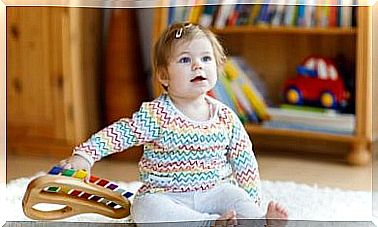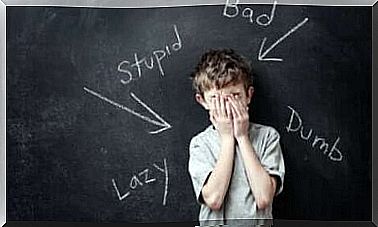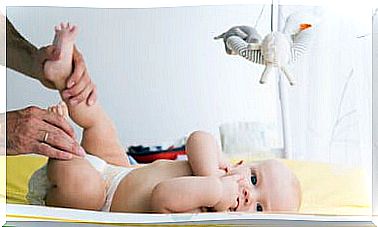Parental Authority: Traditional And Modern Perceptions

Our society is based on rules that make it easier to live together. From an early age, a child learns codes of conduct in many ways. However, the trend seems to be that children behave worse today than before, which may be due to a lack of parental authority.
Culture is a dynamic structure, and so should the mechanisms of authority towards the child. It must not be forgotten that the new generation is often different from its predecessors in many positive ways.
Insufficient parental authority and child behavior
Behaviors and permissible things are two factors that form the basis of family authority. Parents are constantly asking themselves what children should be allowed and what not. Unfortunately, some parents associate authority with abuse of power, which brings with it detrimental effects.
First, one must understand what parental authority means. Psychologists and pediatricians with a modern mindset recommend treating children with respect. When based on love, solidarity, and respect, authority becomes one of the best gifts a parent can give to their child.
Previously, only the father was perceived as the head and authority of the family. The children might fear returning from their father’s work, as they associated him with punishment and a lack of affection. Fortunately, the world today is different in many ways. Today, there is no more talk of authority, but of a lack of dialogue within the family.
Positive reinforcement is always the best method when it comes to breeding. Raising a child is not about prescribing, but about getting in touch with the child and his or her feelings. Every step in a child’s life requires setting new boundaries, and mothers and fathers should be respectful in this process.

Necessary and unnecessary rules
Given that society is largely focused on adults, it is difficult for a child to understand general norms of behavior. For some parents, bad behavior is the result of the authoritarian upbringing they receive for themselves.
Psychologists who specialize in children are of the opinion that each home should have its own rules, which is a clearly different view. We no longer talk about authority, but focus on the need for family norms. The child should know that his actions have consequences and that he is responsible for his own actions.
Rules for living in a family
In order to form agreements for living together, it is important to keep in mind the age of the child. Every adult should also evaluate their own attitudes and behavior and recognize the authoritarianism that society has planted in mind since childhood.
One important thing in respectful parenting is that emotions should be kept separate from the rules. So the rules are not personal, they are about helping the child learn the consequences of their own actions.
For example, when a child is said to be naughty, the child’s behavior is judged subjectively. At the same time, he creates a negative feeling for the rule and authority.

Rules of the game
When we talk about a lack of authority, things are seen from an adult-centered and traditional perspective. With fun and creativity, living in a family can instead be seen as a game, and this game, of course, has its own rules.
Utilizing the concept of the game, the lack of clear rules would make the game uninteresting. There is no need for punishment, but the consequences of breaking the rules must be known to everyone.
This new model of upbringing leaves behind authoritarian and ineffective notions of parenting. Modern mothers and fathers do not want to repeat the painful and unfair situations they have experienced in their own childhood.
Today, therefore, parental authority refers to a loving and respectful presence in a child’s development. The goal is to help the child form good values and give him or her the tools to lead a healthy life.









